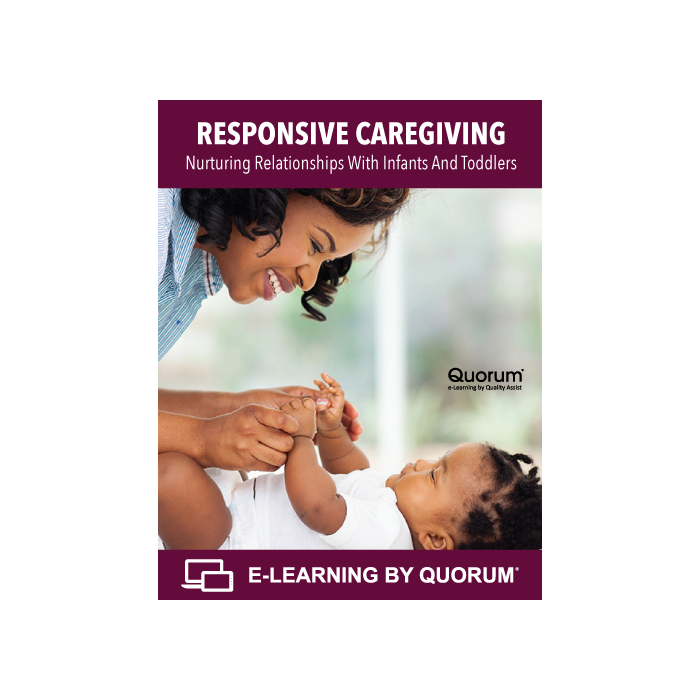Responsive Caregiving: Nurturing Relationships with Infants and Toddlers
Watch this short video to learn more about this class.
Responsive caregiving is the foundation of quality infant and toddler care. This course begins with an overview of responsive caregiving, and then goes deeper into the aspects of developing nurturing relationships with infants and toddlers. Participants will explore Attachment Theory which is at the heart of responsive caregiving; examine the role of the caregiver in understanding social and emotional development; and review a variety of communication strategies that foster nurturing relationships. This is a 2-hour course worth .2 CEUs.
This course can be utilized to meet the training requirements to earn or renew your Child Development Associate (CDA) credential. Course content is aligned with the CDA Subject Area 3: Supporting children’s social and emotional development.
- Attachment
- Social-Emotional
- Responsive Caregiving
- Communication
- Schedules and Routines
- Bonding
- Individualizing Care
- Family Relationships
- Social Development
- Emotional Development
- Behavior
- Child Development
- Serve and Return
- Brain Development
Approved for 0.2 Continuing Education Units (CEUs) in all 50 states.
This course is approved for CEUs in every state. It is also approved for state training hours in Alabama, Alaska, Arizona, California, Colorado, Delaware, District of Columbia, Florida, Georgia, Idaho, Illinois, Indiana, Iowa, Kansas, Kentucky, Maryland, Massachusetts, Michigan, Minnesota, Mississippi, Missouri, Nebraska, Nevada, New Hampshire, New Jersey, New Mexico, New York, North Carolina, Ohio, Oklahoma, Oregon, Pennsylvania, Rhode Island, South Carolina, South Dakota, Tennessee, Texas, Utah, Vermont, and Virginia.
“I will build a nurturing relationship with the children in my classroom by understanding each child's background, culture, family traditions, and routines. I will get to know each child's temperament and preferences. My classroom will have the appropriate equipment and materials to stimulate curiosity and learning.”
-Elizabeth K., DC, 2021


